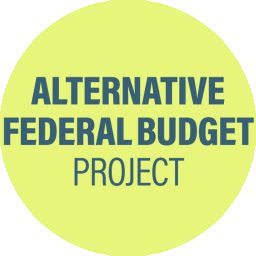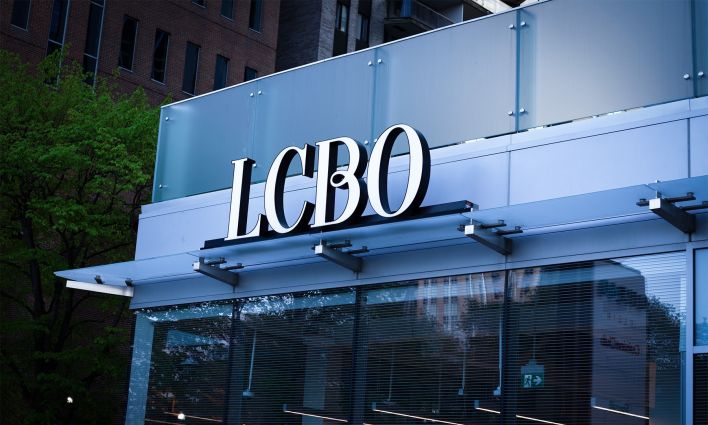Introduction
Now, more than ever, we need the federal government to be ambitious and feminist—and we need a strong gender justice movement to hold it accountable.1 The combined impacts of the COVID-19 pandemic, spiralling food and housing costs, and rising levels of gender-based violence are creating lasting damage for marginalized women and gender-diverse people.
Recent federal budgets have delivered important gains, including historic investments in child care, the first-ever National Action Plan to End Gender-Based Violence, and the Federal 2SLGBTQI+ Action Plan. Decisive action is now needed in the form of concrete implementation and monitoring plans, sustained and increasing resourcing, and coordinated action across all levels of government to achieve systemic change.
Overview
The COVID-19 pandemic’s devastating impact revealed the fragile state of care in Canada and its importance to the economy, families, and the community. The pandemic also exposed the link between the wages, job security, and working conditions of care workers and the quality of care—with tragic results.
Even today, with job vacancies across the care economy at record-high levels, wages remain comparatively low, especially for the lowest-paid and most precarious workers putting in long, gruelling hours. Lack of access to care is compounding existing systemic inequities experienced most acutely by marginalized communities, including Indigenous Peoples, racialized groups, and people with disabilities.2
Meanwhile, governments are turning to staffing agencies and gig platforms to meet demand, which is further undermining the working conditions and compromising the rights of care workers (see chapters on child care, seniors’ care, health care, and immigration). The 2023 budget directed no investment to Canada’s care economy while targeting billions to male-majority industrial sectors. Communities are still waiting for bold action to address the roots of the care crisis.
Communities are also still waiting for a comprehensive and fully resourced National Action Plan to Eliminate Gender-Based Violence that facilitates and oversees the actions of all governments. For a decade, survivors, advocates, and frontline workers called for such a plan, working tirelessly as gender-based violence surged,3 in the context of the pandemic and beyond.4
Then, in November 2022, Canada’s first ever National Action Plan to Eliminate Gender-Based Violence5 was finally released with little fanfare. Not long after that, in January 2023, the International Labour Organization’s Violence and Harassment Convention (C-190) was ratified, thanks to the efforts of the labour movement.6 But critical questions remain about how the federal government will ensure the provision of high-quality supports and services across jurisdictions, including Indigenous communities,7 and how it will combat the rising tide of gender-based violence—most notably against 2SLGBTQI+ groups, people with disabilities, and sex workers.
More than $600 million was promised in the 2021 budget to support new programming over five years, including $539.3 million (announced in 2022) to work with provinces and territories to help implement the National Action Plan.8 But no funding appears to have been allocated for federal implementation of the National Action Plan or for the plan itself. The plan itself provides only a vague shopping list of potential actions, the details of which are to be hashed out through new bilateral agreements with each province and territory.
Key recommendations and national-level actions are missing and there is no mention of independent oversight or sustainable long-term investment. Implementation plans and “more targets and indicators” are to follow.
Likewise, Indigenous women’s groups have decried the government’s lack of progress in responding to the Calls for Justice from the National Inquiry into Missing and Murdered Indigenous Women and Girls.9 An amount of $2.2 billion was set aside in the 2021 budget to “accelerate” work on a National Action Plan10 but funding commitments are proceeding very slowly.11 Without a measurable, costed plan in place, Indigenous women and girls remain at great risk of ongoing violence and trauma.12
Action is also needed to uphold sexual and reproductive rights at home and abroad, in the face of extremist attacks on gender equality and 2SLGBTQI+ rights, and widespread disinformation campaigns. This includes guaranteeing access to high-quality, scientifically accurate, and comprehensive sexuality education for all children and young people across the country.13
Access to information is fundamental to the realization of a wide set of rights relating to sexuality, gender, reproduction, economic security, and bodily autonomy.14 The 2023 budget announcement of a three-year, $36-million extension of the Sexual and Reproductive Health Fund was an important acknowledgement that many people continue to face significant barriers in accessing needed health care, including abortion. This fund needs to be made permanent with sufficient funding to fill critical gaps in service.
The current negotiations for a national pharmacare program, including a national formulary, is another key opportunity to uphold reproductive and sexual health/rights by providing universal free access to contraceptive supplies and gender affirming care.15 The government of British Columbia’s move to make prescription contraception free has set the bar for the whole country.16
Direct funding to women’s organizations is another effective means of improving the quality of women’s lives and advancing gender justice.17,18 The current government has significantly increased funding to women’s rights and equality-seeking organizations over several years. This includes funding for time-limited projects and capacity-building under the Women’s Program; the Gender-Based Violence Program; and the Equality for Sex, Sexual Orientation, Gender Identity, and Expression Program. It also includes $300 million in emergency financial aid for shelters and anti violence organizations during the pandemic.
More recently, $160 million in new project funding for the Women’s Program was made available in the 2023 budget, the result of a concerted campaign on the part of feminist organizations.19,20 In August 2022 the federal government announced the first-ever Federal 2SLGBTQI+ Action Plan, pledging $100 million over five years to develop and implement the plan—with 75 per cent of funds going directly to 2SLGBTQI+ organizations via project and capacity-building grants.21,22
Hundreds of organizations have benefited from current financial support. They are rebuilding organizational capacity after years of scraping by, responding to pressing community needs, and working to advance and sustain gender equality. Others have resources for the first time, uplifting their communities at a time of far-right agitation and increased anti-2SLGBTQI+ hate. Moving forward, adequate and sustained funding is essential to carry out this vital work at levels that reflect the scale of the challenge.
Actions
The AFB will move forward several key areas that are essential to the health and well-being of women and gender-diverse people.
The AFB will establish a National Care Economy Commission ($30 million over three years), as recommended by the Standing Committee on the Status of Women23 and pursuant to Canada’s obligations as a member of the Global Alliance for Care.24 The commission will use an intersectional framework to examine paid and unpaid care work in Canada and to develop a National Strategy and Action Plan for expanding the stock and quality of publicly managed non-profit care.25
The Strategy for Care will embrace the International Labour Organization’s 5R framework for decent care work26 and ensure a whole-of-government approach that prioritizes care for groups who have historically been failed by care systems. It will support the development and coordination of sector-specific and evidence-based standards for high-quality service in different fields (e.g., child care, gender-based violence, seniors’ care) as well as sector-specific labour force strategies and immigration reforms.
Its goal will be to improve working conditions and rates of pay among these undervalued, largely female, and racialized workforces, prioritizing public and non-profit delivery.27
The AFB will introduce a robust and well-resourced Employment Equity Act. The Task Force on the Employment Equity Act Review28 has completed its review but it has not yet been released—delaying promised reforms by potentially years.
The AFB will allocate $20 million over the next three years for the development of a new employment equity regime, aligned with the efforts of the Office of the Pay Equity Commissioner and the Office of the Accessibility Commissioner. It will ensure that it has the resourcing necessary to support and enforce implementation, including regular independent public reviews.
The AFB will move forward with the implementation of a fully resourced National Action Plan to combat all forms of violence against women and gender diverse-people, in collaboration with survivors, frontline workers, and equality-seeking organizations.
The plan will include clear goals and targets for reducing violence; an effective administrative focal point for developing, implementing, and evaluating the National Action Plan; an independent mechanism for monitoring and publicly reporting on progress and lessons learned; escalating investments in prevention and wraparound support for survivors, provided via well-resourced community service organizations; and strategies for reforming legal and justice systems. An additional $600 million will be invested over the next four years for the development and implementation of the national and federal components of the National Action Plan.
The AFB will similarly take action to create a fully-resourced implementation plan and related accountability mechanisms to combat all forms of violence against First Nations, Inuit, and Métis women, girls, and Two-Spirit people—under the guidance and oversight of Indigenous women’s organizations and grassroots groups representing Indigenous women and their families across the country.
The AFB will take action to implement International Labour Organization Convention C-190 on violence and harassment in the world of work, with $20 million per year in funding. This process will embrace a comprehensive definition of employees (for example, it will include interns) and violence (for example, it will include racial harassment), to apply in all situations arising in the course of work, linked with work, or arising out of work, including homes as workplaces and experiences of third-party violence (for example, from customers).
The AFB will also expand access to domestic violence leave to a minimum of 10 paid days and 10 unpaid days in federally regulated sectors (at a cost of $5 million per year) and ensure that there are targeted measures to counter anti 2SLGBTQI+ hate in the National Action Plan on Combating Hate.29
The AFB will establish a public, universal, single-payer pharmacare plan with a national formulary that includes the full range of sexual and reproductive medicines, commodities, and devices for all (see chapter on health care).
The AFB will also make permanent the new National Sexual and Reproductive Health Survey (currently under development) and Sexual and Reproductive Health Fund (extended to 2027 in the 2023 budget), at $15 million per year for the latter, to continually address gaps in access to abortion care and systemic barriers to sexual, reproductive, and gender-affirming health care.
The AFB will develop and launch a national five-year strategy in support of the standardization and equitable access to high-quality, evidence-based, comprehensive sexuality education across Canada and a corresponding training program for professional sexual health educators.30 Such an initiative would empower young people and raise the bar on the quality of education, emphasizing the impacts of colonialism, racism, ableism, homophobia, transphobia, sexism, etc., on the social determinants of health ($4 million per year for five years).
The AFB will make permanent funding for women’s and gender equity organizations under the Women’s Program (at $100 million per year), including those working at a national level on advocacy, research, education, policy analysis, and legal reform to advance the rights of women and gender-diverse people.
The AFB will also make permanent the 2SLGBTQI+ Capacity Building Fund (at $25 million per year) and take action to address gaps in the new 2SLGBTQI+ Action Plan, including a whole-of-government implementation plan.31,32
The AFB will commit to providing multi-year, flexible funding to organizations that will fully cover administrative/core costs to enhance their financial security and program impacts.33 It will also explore options for the establishment of endowment funds as a long-term, sustainable source of funding for gender equity organizations and the 2SLGBTQI+ community.







